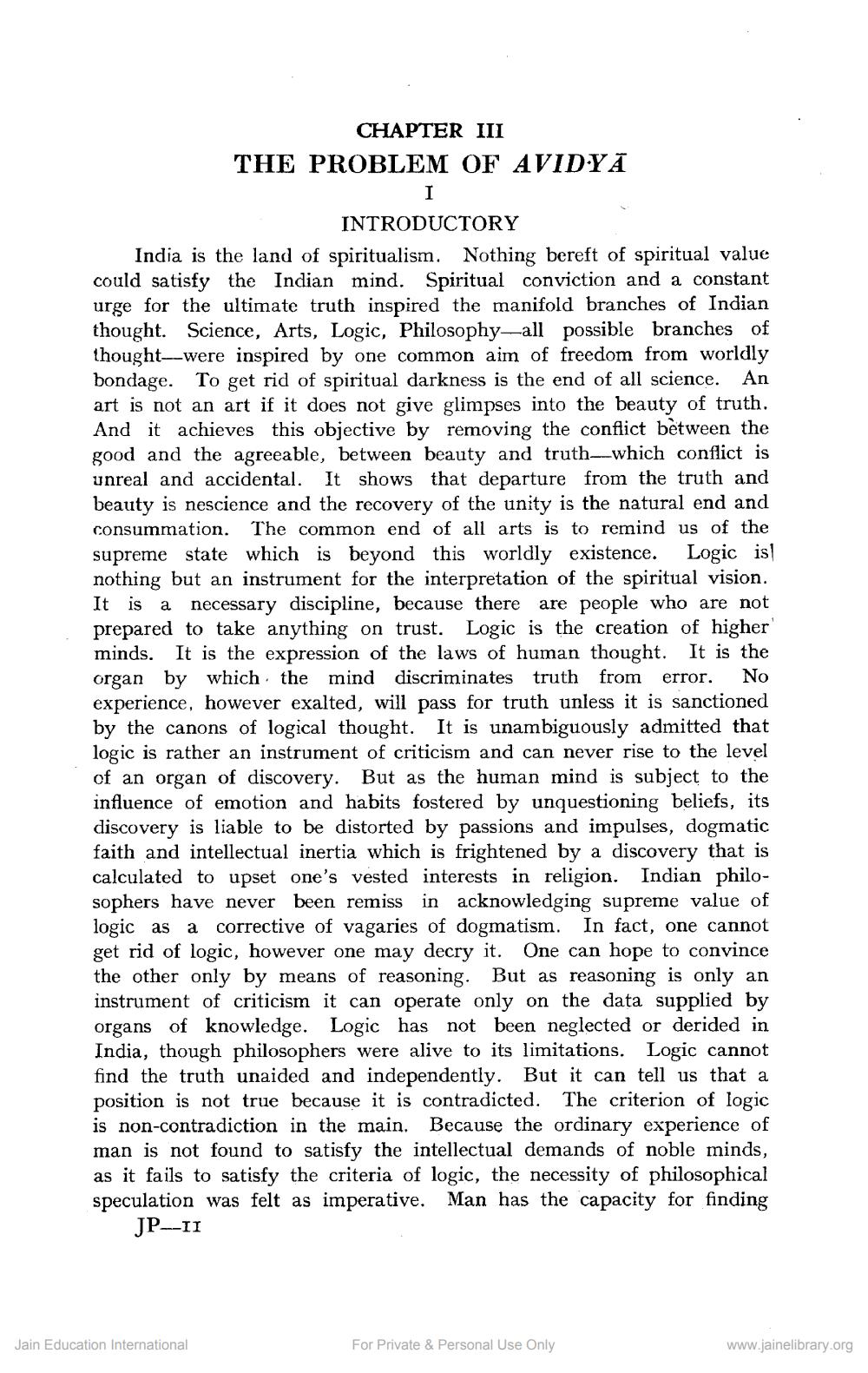________________
CHAPTER III
THE PROBLEM OF AVIDYĀ
Jain Education International
I
INTRODUCTORY
India is the land of spiritualism. Nothing bereft of spiritual value could satisfy the Indian mind. Spiritual conviction and a constant urge for the ultimate truth inspired the manifold branches of Indian thought. Science, Arts, Logic, Philosophy-all possible branches of thought--were inspired by one common aim of freedom from worldly bondage. To get rid of spiritual darkness is the end of all science. An art is not an art if it does not give glimpses into the beauty of truth. And it achieves this objective by removing the conflict between the good and the agreeable, between beauty and truth-which conflict is unreal and accidental. It shows that departure from the truth and beauty is nescience and the recovery of the unity is the natural end and consummation. The common end of all arts is to remind us of the supreme state which is beyond this worldly existence. Logic is! nothing but an instrument for the interpretation of the spiritual vision. It is a necessary discipline, because there are people who are not prepared to take anything on trust. Logic is the creation of higher' minds. It is the expression of the laws of human thought. It is the organ by which the mind discriminates truth from error. No experience, however exalted, will pass for truth unless it is sanctioned by the canons of logical thought. It is unambiguously admitted that logic is rather an instrument of criticism and can never rise to the level of an organ of discovery. But as the human mind is subject to the influence of emotion and habits fostered by unquestioning beliefs, its discovery is liable to be distorted by passions and impulses, dogmatic faith and intellectual inertia which is frightened by a discovery that is calculated to upset one's vested interests in religion. Indian philosophers have never been remiss in acknowledging supreme value of logic as a corrective of vagaries of dogmatism. In fact, one cannot get rid of logic, however one may decry it. One can hope to convince the other only by means of reasoning. But as reasoning is only an instrument of criticism it can operate only on the data supplied by organs of knowledge. Logic has not been neglected or derided in India, though philosophers were alive to its limitations. Logic cannot find the truth unaided and independently. But it can tell us that a position is not true because it is contradicted. The criterion of logic is non-contradiction in the main. Because the ordinary experience of man is not found to satisfy the intellectual demands of noble minds, as it fails to satisfy the criteria of logic, the necessity of philosophical speculation was felt as imperative. Man has the capacity for finding JP-11
For Private & Personal Use Only
www.jainelibrary.org




